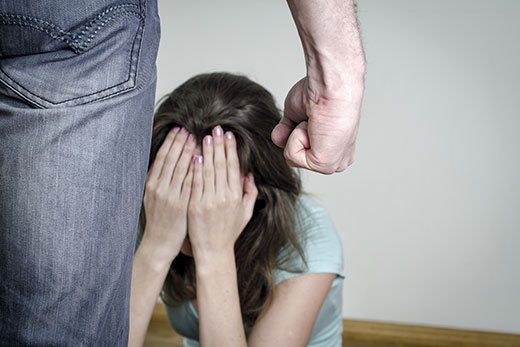Agencies helping women escape abusive partners are providing more food parcels and clothing than ever due to the cost of living crisis.
They are also worried more woman are staying in dangerous relationships because they cannot afford to leave.
Women's Refuge spokesperson Susan Barker says financial hardship was making bad situations worse.
She says they knew some women were staying with abusive partners because they were in poverty.
"We're concerned there are a lot of women out there we know that are in unsafe situations living with an abuser and the viability of leaving with the huge financial pressure of not being able to afford to live is obviously going to affect their decision as to whether they are even going to attempt to reach out for help."
Susan says 67 per cent of family violence incidents went unreported.
"It's really concerning for us if you think about a healthy relationship and financial pressure of not being able to put food on the table, pay your bills, is going to cause a lot of friction. We think that if there's already abuse present it's going to make these situations worse and more volatile."
Women's Refuge has 40 safe houses across the country.
Susan says the average stay had increased from 26 days to over 30 days because it was more difficult for women starting over to get back on their feet.
"For the women that are reaching out for help to us, we're finding they're needing much greater support when it comes to basics like food, clothing, shelter and staying with us for longer."
Shine has a free helpline and provides safe houses for women escaping abuse.
Its senior family violence advisor Rachel Kain says economic hardship was more common among those requesting help.
"Our frontline are reporting that nearly every single person who's enrolled in our programmes, for people experiencing violence and people using violence, need food support."
She says Shine received 30 per cent more calls for help in the first three months of this year, compared to the same period in 2023.
"Poverty, stress, financial hardship don't cause family violence [but] they can make the violence worse, more severe. The primary outcome is it limits the options that people have."
Rachel says the wait for state or emergency housing was also a problem, with affordable rentals hard to find.
Auckland University's Family Violence Clearing House pools research from around the world to help inform policy-makers.
Its kaiwhakahaere (manager) Charlotte Moore says housing was a top priority.
"Access to housing is huge. Continuing to ensure that the state is growing its stock of social housing and that that social housing is warm, safe, accessible, plentiful is really important."
She says the welfare system also needed to be accessible and not leave people in a worse-off situation.
"I think that ensuring that our welfare system is really keyed up in terms of understanding the dynamics of [family violence] and not being punitive in its approach to dealing with people seeking welfare is really important."
Charlotte says one good step was a policy framework introduced in 2023 that aimed to get government agencies to consider the impact of family violence as a contributing factor to the financial debt people owed the state.
Where to get help for family violence
Women's Refuge: 0800 733 843
It's Not OK 0800 456 450
Shine: 0508 744 633
Victim Support: 0800 842 846
HELP Call 24/7 (Auckland): 09 623 1700, (Wellington): 04 801 6655 - push 0 at the menu
The National Network of Family Violence Services NZ has information on specialist family violence agencies.



1 comment
The Master
Posted on 03-08-2024 13:05 | By Ian Stevenson
Maybe the answer for some, perhaps even most is that the problem is solved earlier the better.
Leave a Comment
You must be logged in to make a comment.